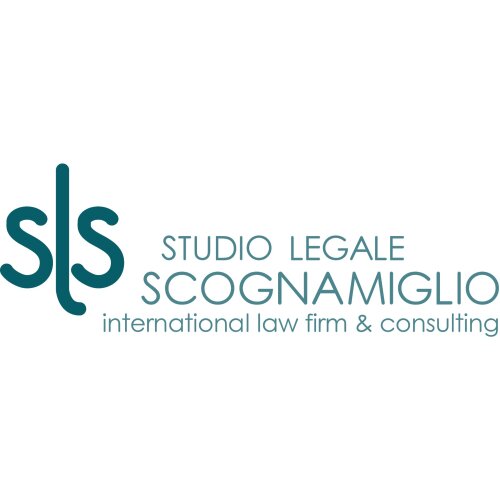Best Oil, Gas & Energy Lawyers in Italy
Share your needs with us, get contacted by law firms.
Free. Takes 2 min.
Or refine your search by selecting a city:
List of the best lawyers in Italy
About Oil, Gas & Energy Law in Italy
Italy is a nation with a rich and diverse energy sector, focusing on oil, gas, and renewable energies. The country imports the majority of its energy needs, making energy security a crucial aspect of its national strategy. Oil and gas exploration in Italy remains significant, particularly offshore in the Adriatic, Ionian, and Ionian Seas, with Italy having established a comprehensive legal framework to regulate these sectors. The Italian government's energy policy emphasizes transitioning from traditional fossil fuels to renewable energy sources, striving to achieve sustainable development while managing its existing fossil fuel resources. This transition is supported by numerous laws and regulatory bodies aimed at promoting cleaner energy alternatives, ensuring environmental protection, and fostering industrial innovation.
Why You May Need a Lawyer
Legal assistance in the oil, gas, and energy sectors in Italy can be critical for several reasons. Individuals and businesses might require legal help to navigate complex regulations, secure permits for exploration or production, handle contracts with suppliers or clients, address environmental compliance issues, or manage disputes related to property rights or resource management. Lawyers specializing in this area can provide valuable expertise to ensure compliance with local laws, aid in negotiations and contracts, and represent their clients in disputes or litigation.
Local Laws Overview
Italy's laws governing the oil, gas, and energy sectors are extensive and multifaceted. Key aspects include:
- Licensing and Permitting: The Italian government, through the Ministry of Economic Development, issues licenses for exploration and production activities. Companies must comply with specific requirements to obtain and maintain these licenses.
- Environmental Regulations: Protection of the environment is a significant concern in legislation related to energy activities. This includes strict regulations on emissions, waste disposal, and environmental impact assessments.
- Renewable Energy Incentives: To promote the transition to renewable energy, Italy offers various incentives, including feed-in tariffs and tax breaks for solar, wind, and other renewable energy projects.
- Energy Market Regulations: The energy market is regulated to ensure fair competition, transparency, and consumer protection. The Italian Regulatory Authority for Energy, Networks, and Environment (ARERA) plays a crucial role in overseeing these regulations.
- Safety Standards: Maintaining high safety standards is mandatory, with specific regulations covering operational safety, equipment standards, and emergency response procedures.
Frequently Asked Questions
1. What is the process for obtaining a drilling license in Italy?
Acquiring a drilling license in Italy involves submitting an application to the Ministry of Economic Development. The application must include detailed information about the proposed project, environmental impact assessments, and technical plans. The process also requires consultation with local authorities and public stakeholders.
2. How does Italy regulate environmental impact for oil and gas projects?
Environmental impacts are regulated by national laws that mandate comprehensive environmental impact assessments (EIA) before any project begins. Additionally, continuous monitoring and adherence to environmental standards throughout the project's duration are required.
3. Are there incentives for renewable energy projects in Italy?
Yes, Italy provides a variety of incentives to support renewable energy projects, including feed-in tariffs, tax deductions, and grants for research and development in renewable technologies.
4. How is the energy market in Italy structured?
Italy's energy market is liberalized, meaning it is open to competition. ARERA oversees the market to ensure fair practices, regulate prices, and protect consumers. The market includes diverse participants, from large energy companies to small renewable providers.
5. What role does the Italian government play in the oil and gas sector?
The government sets the regulatory framework, issues licenses, and oversees the compliance of companies operating in the sector. It also prioritizes national energy security and sustainability through policy-making and strategic initiatives.
6. How are disputes in the oil and gas industry resolved?
Disputes can be resolved through negotiation, arbitration, or litigation. Italy has specific legal frameworks and courts designated for resolving energy sector disputes, promoting fair and effective resolutions.
7. What is Italy's stance on energy transition?
Italy is committed to transitioning towards sustainable energy sources. It supports this transition through legislative measures favoring renewable energy, energy efficiency initiatives, and reducing carbon emissions.
8. Can international companies invest in Italy's energy sector?
Yes, international companies can invest in Italy's energy sector, subject to compliance with local laws and policies. Strategic sectors like energy may require additional scrutiny or conditions to ensure national interests.
9. What is the role of ARERA?
ARERA is responsible for regulating and supervising Italy's energy, water, and waste management sectors. It ensures that energy markets are fair, pensions adhere to regulations, and consumer rights are protected.
10. How do local energy laws in Italy align with EU regulations?
As an EU member state, Italy's energy laws align closely with EU directives and regulations. The country implements EU policies on energy efficiency, market liberalization, emissions targets, and renewable energy development.
Additional Resources
Here are some resources that may be helpful for further exploration:
- Ministry of Economic Development: This ministry oversees Italy's energy policies and regulations.
- ARERA: Italian Regulatory Authority for Energy, Networks, and the Environment, ensuring market regulation and consumer protection.
- ENI: The largest oil and gas company in Italy, providing insights into industry practices and innovations.
- GSE (Gestore dei Servizi Energetici): Manages the promotion of renewable energy and energy efficiency.
- Confindustria Energia: Represents the energy industry in Italy, providing updates and resources on industry regulations.
Next Steps
If you need legal assistance in the field of oil, gas, and energy in Italy, consider the following steps:
- Research: Start by researching relevant laws and industry standards applicable to your situation. Use resources recommended above.
- Consult with Experts: Contact law firms or legal professionals specializing in Italian energy law. They can provide insights based on their knowledge and experience.
- Prepare Documentation: Gather all necessary documentation related to your legal needs, such as contracts, permits, and communications.
- Evaluate Options: Discuss your options with the legal professionals to understand potential courses of action and their implications.
- Proceed with Legal Action: Follow the legal advice provided and initiate any necessary legal or regulatory actions with the support of your lawyer.
Lawzana helps you find the best lawyers and law firms in Italy through a curated and pre-screened list of qualified legal professionals. Our platform offers rankings and detailed profiles of attorneys and law firms, allowing you to compare based on practice areas, including Oil, Gas & Energy, experience, and client feedback.
Each profile includes a description of the firm's areas of practice, client reviews, team members and partners, year of establishment, spoken languages, office locations, contact information, social media presence, and any published articles or resources. Most firms on our platform speak English and are experienced in both local and international legal matters.
Get a quote from top-rated law firms in Italy — quickly, securely, and without unnecessary hassle.
Disclaimer:
The information provided on this page is for general informational purposes only and does not constitute legal advice. While we strive to ensure the accuracy and relevance of the content, legal information may change over time, and interpretations of the law can vary. You should always consult with a qualified legal professional for advice specific to your situation.
We disclaim all liability for actions taken or not taken based on the content of this page. If you believe any information is incorrect or outdated, please contact us, and we will review and update it where appropriate.
Browse oil, gas & energy law firms by city in Italy
Refine your search by selecting a city.
















